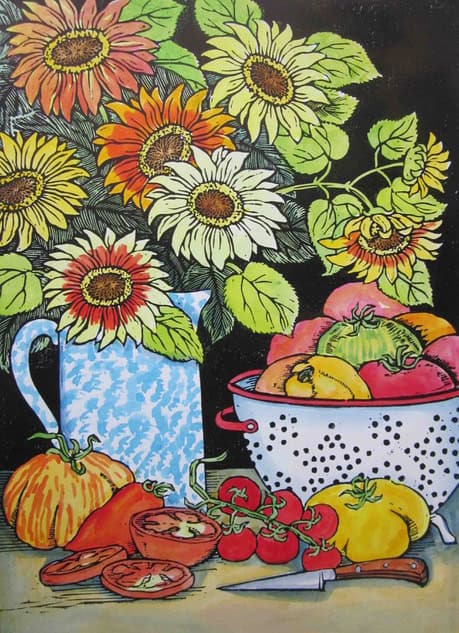 Will Bonsall, Sustainable Gardener and Seed Saver at Scatterseed Project
Will Bonsall, Sustainable Gardener and Seed Saver at Scatterseed Project
“Genetic diversity is the hedge between us and global famine,” writes Will Bonsall, author of Will Bonsall’s Guide to Radical, Self-Reliant Gardening and founder of the Scatterseed Project. In the Western Maine Mountains, Bonsall collects, maintains, and distributes plants and seeds, many of them rare or endangered. He’s been featured in the documentary film Seed: The Untold Story and is best known for his work in promoting the importance of preserving diversity.
“Extinction is a term we often hear attributed to wild things but not to agriculture,” says Bonsall, in a phone interview, as he describes that 94 percent of vegetable seed varieties have been lost during the twentieth century, as global agriculture became more consolidated and food production moved away from local farms and backyard gardens, resulting in vanishing heritage varieties. Getting seeds out in the world is the opposite of holding them in a seed bank for preservation, this is my goal. Not to feed the world, but to feed me and let others feed themselves, too, by learning to save seeds.
What is the Scatterseed Project?
Will Bonsall: “The Scatterseed Project is based on not keeping too many eggs in the same basket, “ he says, referring to why he values the diversity of crops versus the homogenized approach that hybrids represent. “I want more people to be keeping their own seeds, so the forgotten foods are in circulation longer.” ‘The word germplasm is the name the genetic material, much of which is preserved in seed banks but unavailable to the general public.
How did you become a seed saver?
Will Bonsall: I am an avid gardener and started saving seeds, not to preserve diversity like other seed savers, but to save money. I am into self-sufficiency, and it made little sense to order the same seeds from seed catalogs if I could grow my own. But I learned from an old Yankee farmer who lived down the road and collected maintained a shelling type of pole bean, a variety I had never seen or tasted. I named it Orlando bean after him and grew out the seeds to make sure they continued.
Will Bonsall: He also had a weird-looking potato called a cow horn—an ugly purplish thing, shaped like a horn and scrawny, too, and a lima bean, which was not a true lima but a white runner bean that he got from another local fellow who got it in the Carolinas..These were the first seeds that turned me into a seed saver.
What is your priority at Scatterseed Project?
Will Bonsall: I am not a seed bank or a seed catalog, but my goal is to maintain diversity in order to keep the seeds in circulation. Varieties remain viable if people are growing and eating them; otherwise, seed catalogs take them off their list and they are gone. Since most home gardeners only need a small number of seeds, I can supply them through Scatterseed, but I would not be able to handle a large order from a market grower.
Do you have favorites?
Will Bonsall: I don’t put attention to the beans, tomatoes, peppers, and squash that most seed banks hold. Instead, I save seed for kohlrabi or parsnip or rutabaga, which are biennial and not as well known in this country because we don’t have a tradition of saving the seeds. The key is to grow all kinds of things in order to be as sustainable as possible. I grow my own grain—oats, barley, buckwheat and soybeans, not because I have to, but because I can. I am not the authority on anything, but I am curious, and the diversity is dazzling.
For More information, visit the Scatterseed Project.
To read more about Will Bonsall, Down East Magazine.
To view a film featuring Will Bonsal, Seeds. The Untold Story


